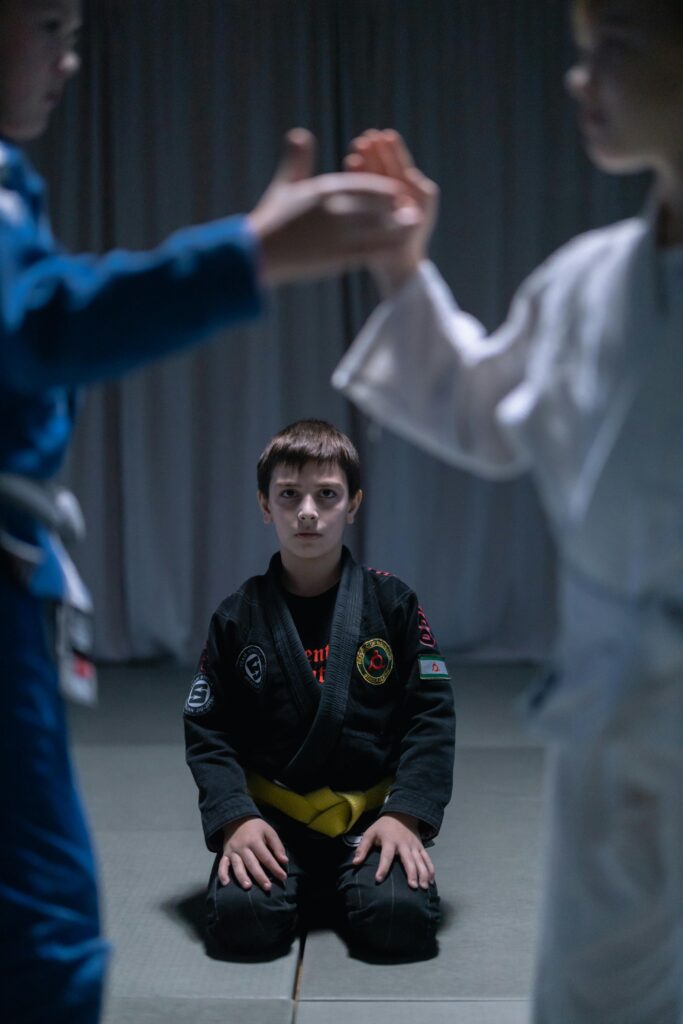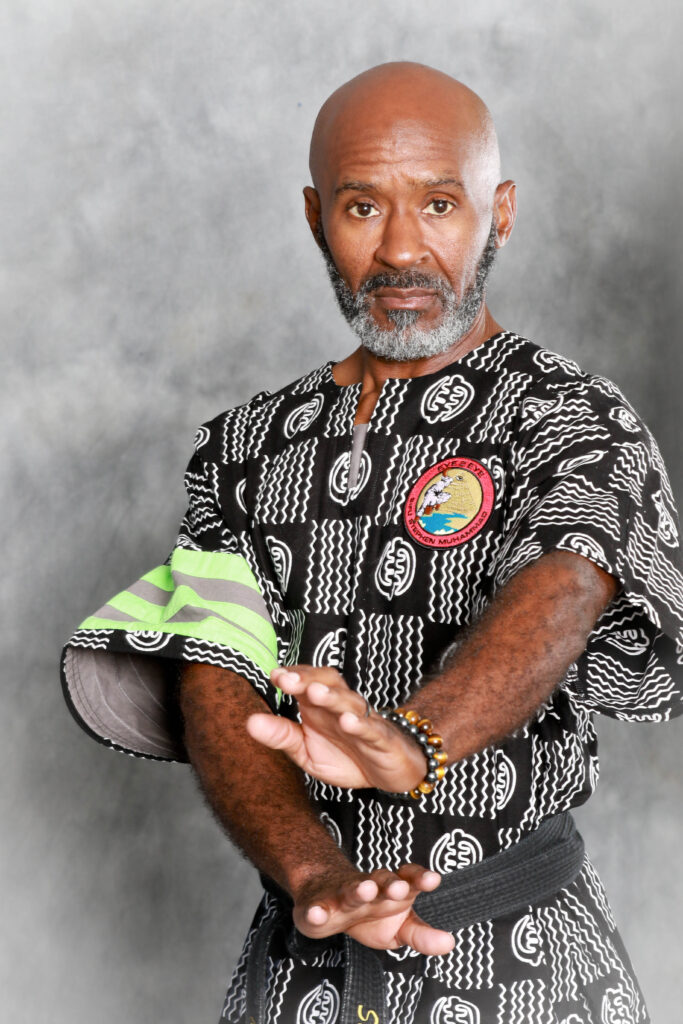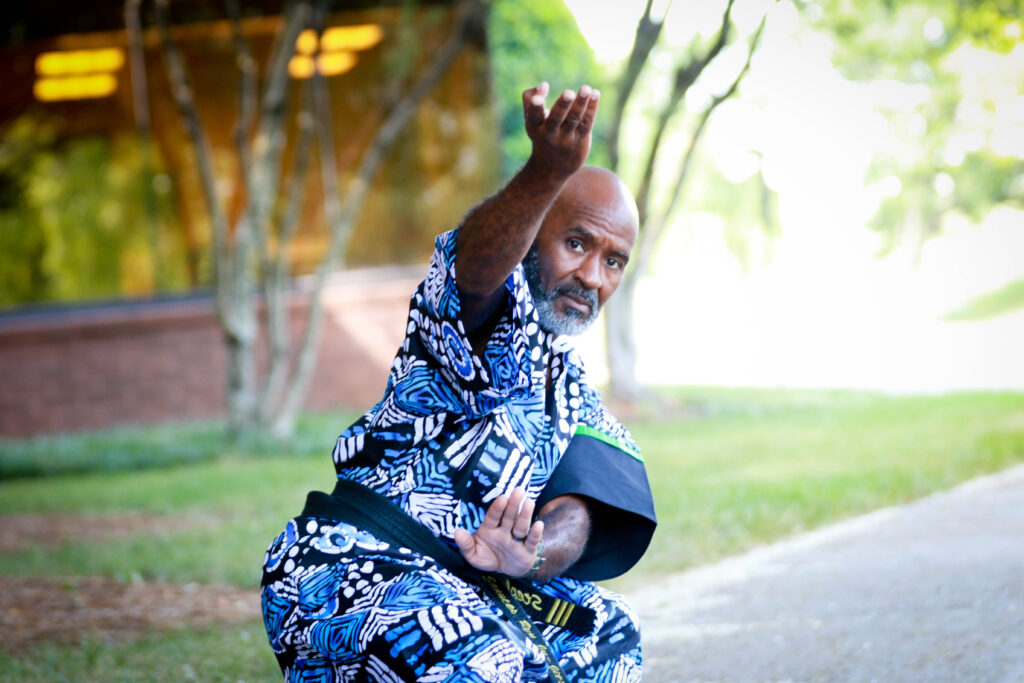When I first encountered Bujutsu, I was captivated by its depth and practicality. This ancient martial art isn’t just about physical moves; it’s a pathway to understanding oneself, mastering discipline, and, yes, protecting oneself and loved ones.
Bujutsu’s principles, rooted in the practices of ancient warriors, give you more than just techniques to handle confrontations—they teach you how to channel energy, control a situation, and stay ahead of potential threats.
It’s a system that builds inner strength as much as physical capability, making it one of the most practical martial arts for real-world situations.
Let me take you through the rich journey of Bujutsu. Along the way, I’ll share what sets it apart from other martial arts and what you can expect if you’re curious to train in it yourself.
What is Bujutsu? Uncovering Its Roots and Philosophy
Bujutsu emerged as the combat system of Japan’s samurai class during the feudal era.
Rooted in practical self-defense and battlefield effectiveness, it encompasses weapon techniques such as kenjutsu (swordsmanship), naginatajutsu (polearms), and kyujutsu (archery), alongside unarmed combat forms like jujutsu.
Drawing inspiration from Chinese martial traditions and shaped by Japan’s unique cultural and military environment, Bujutsu developed into a versatile system for survival and strategy in warfare.
Key Figures in Bujutsu History
Several key figures played pivotal roles in the evolution of Bujutsu. Kamiizumi Nobutsuna, founder of Shinkage-ryū during the 16th century, transformed traditional swordsmanship by introducing a focus on adaptability and strategic thinking.
His innovative training methods emphasized mental and physical harmony, leaving a lasting legacy in Japanese martial arts.
Another notable figure is Ryushin Yakushimaru, who established the Kukishin-ryū school in the 14th century, specializing in diverse weapon techniques crucial for samurai combat.
The Philosophy of Bujutsu
Beyond physical techniques, Bujutsu emphasizes mental discipline, energy control, and ethical conduct. Practitioners are taught to harmonize mind and body, fostering resilience, strategic thinking, and calm under pressure.
This holistic approach elevates Bujutsu from a martial art to a profound life philosophy, preserving its relevance across centuries.
What is Koryu Bujutsu?
Koryu Bujutsu, meaning “ancient martial arts” in Japanese, refers to the traditional combat systems practiced by samurai in feudal Japan.
These arts include disciplines like kenjutsu (swordsmanship), jujutsu (grappling), and sojutsu (spear techniques), each emphasizing practical battlefield effectiveness.
Unlike modern martial arts, which often focus on sport or self-improvement, Koryu Bujutsu preserves the essence of warfare and feudal philosophy.
It requires dedication to tradition, often involving formal training methods, ritual, and the study of historical weaponry and tactics, all aiming to deepen one’s understanding of martial culture and personal discipline.
The Unique Benefits of Training in Bujutsu
The more you dive into Bujutsu, the more you realize its benefits extend well beyond physical fitness. Training in Bujutsu builds skills that impact many parts of your life. Here’s what I’ve found most valuable:
Enhanced Physical Fitness
Bujutsu training improves your flexibility, balance, and core strength. Each movement is grounded in practicality, meaning that even beginners can learn techniques that support overall fitness.
Mental Clarity and Stress Relief
Bujutsu emphasizes mental training just as much as physical technique. Practicing control and discipline during training sessions naturally brings a sense of calm, clarity, and focus that can be incredibly beneficial in managing everyday stress.
Real-World Self-Defense Skills
Bujutsu teaches skills that you can apply immediately. The techniques are practical and don’t require years of training to use effectively.
Whether you’re in a crowded area or facing an unexpected confrontation, Bujutsu’s techniques help you stay safe and in control.
One of the great things about Bujutsu is that its training doesn’t require a specific body type or prior experience. It’s a path of discovery and growth for anyone willing to learn and put in the effort.
Bujutsu vs. Other Martial Arts – What Sets It Apart?
If you’re familiar with karate, judo, or jiu-jitsu, you might be wondering what makes Bujutsu different. Each martial art has its strengths, but Bujutsu brings unique qualities to the table.
Immediate Practicality
Many martial arts take time to develop before you can use the skills effectively. Bujutsu, however, is built on immediate application. From the very first session, you’re learning moves that can be useful in real-life situations.
Energy Control
Unlike styles that focus primarily on physical strength, Bujutsu teaches you to read and redirect an opponent’s energy. This technique, known as energy manipulation, allows you to neutralize threats efficiently without relying solely on physical force.
A Holistic Approach
Bujutsu training includes mental exercises and techniques for building inner strength. This dual focus on mental and physical resilience is what makes Bujutsu a truly well-rounded practice.
Bujutsu’s unique approach means that anyone can find value in training, regardless of age, strength, or experience level.
Key Techniques and Skills Taught in Bujutsu
As someone who’s practiced Bujutsu for some time, I can say that its techniques are incredibly adaptable and easy to learn. Here’s a glimpse into what you’ll cover in Bujutsu training:
Basic Offensive and Defensive Moves
Every student begins with foundational techniques like basic strikes, stances, and defense positions. These moves are straightforward but highly effective in protecting yourself from an attacker.
Energy Manipulation Techniques
One of the most unique skills you’ll learn in Bujutsu is how to work with energy. This is about more than just physical movement.
By understanding and redirecting your opponent’s energy, you can manage confrontations calmly and even neutralize a threat without excessive force. It’s an empowering technique that builds confidence and poise.
Escape Techniques
You’ll also learn how to disengage from risky situations quickly. These moves are incredibly useful, especially in crowded spaces or tight areas. They’re simple but effective, making it easy for anyone to learn and use these skills right away.
Each skill is developed to be practical, efficient, and adaptable to different scenarios, which makes Bujutsu so useful beyond the dojo.
How Bujutsu Builds Inner Confidence and Self-Discipline
One of the most valuable benefits of Bujutsu is the confidence it builds. Bujutsu doesn’t just teach you how to defend yourself—it gives you the mindset and discipline to remain calm and in control.
You learn to respect your own abilities and understand when it’s appropriate to use them.
Training in Bujutsu instills a discipline that goes beyond the training space. You gain a deeper appreciation for the practice, for your own strength, and for the importance of acting responsibly.
This discipline naturally extends into daily life, impacting how you handle challenges, stressful situations, and interactions with others. It’s a rewarding journey that builds both inner strength and personal resilience.
Training in Bujutsu – What to Expect
If you’re thinking about starting Bujutsu, here’s what you can expect from the training process.
Who Can Train in Bujutsu?
The beauty of Bujutsu is that it’s suitable for people of all ages and backgrounds. Whether you’re a teen looking to build confidence or an adult interested in self-defense, Bujutsu can be adapted to fit your goals and capabilities.
Training Environment and Community
Training in Bujutsu isn’t just about learning techniques; it’s about joining a community. You’ll find a welcoming, supportive atmosphere where respect and growth are valued.
The camaraderie among students and instructors makes the experience truly enjoyable and fulfilling.
Uniform and Significance
Bujutsu practitioners often wear the traditional Hakama, a custom uniform symbolizing the wearer’s commitment and growth.
The Hakama is more than just clothing—it represents the journey and discipline each student undertakes in their practice.
The training environment is designed to support learning at every level, with exercises that challenge and encourage you to grow at a pace that’s right for you.
The Lasting Impact of Bujutsu Training
Bujutsu offers a powerful blend of mental and physical growth. Training builds confidence, discipline, and a real sense of inner peace.
Whether you’re focused on self-defense or looking to explore martial arts for personal growth, Bujutsu equips you with skills that have a lasting impact.
I’ve seen firsthand how Bujutsu changes people. Students not only improve their self-defense skills but also develop a newfound strength that enhances their lives beyond the dojo.
It’s a journey of discovery and empowerment, one that transforms the way you think, feel, and respond to the world around you.
Bujutsu isn’t just a martial art—it’s a lifelong path that brings growth, resilience, and confidence.
Unlock Practical Self-Defense and Inner Growth at Eye2Eye Combat
Bujutsu isn’t just about mastering techniques; it’s a transformative journey that builds physical strength, mental focus, and inner resilience. At Eye2Eye Combat, we’re here to help you explore the power of Bujutsu firsthand.
Whether you’re looking to improve self-defense skills, develop mental clarity, or join a supportive community, Eye2Eye Combat offers a welcoming space to grow.
Ready to start your journey? Join our Bujutsu classes and experience the life-changing impact of Bujutsu for yourself.
FAQs
What does Bujutsu mean?
Many people wonder what the Bujutsu meaning is. Bujutsu refers to the “martial techniques” or “warrior arts” that focus on practical combat skills. It’s a martial art that emphasizes effective, real-world techniques designed to defend, control, and neutralize opponents. Unlike some arts that focus on forms or philosophy alone, Bujutsu is all about techniques that can be applied in real situations, offering both mental and physical benefits.
What is the difference between Bujutsu and Budo?
While both Bujutsu and Budo are rooted in Japanese martial traditions, they have distinct focuses. Bujutsu centers on combat techniques for immediate self-defense, while Budo translates to the “martial way,” focusing on personal growth and discipline. Bujutsu is about mastering skills to use in the real world, while Budo takes these skills and integrates them as a lifelong practice of self-improvement.
What is the hardest martial arts form?
The hardest martial arts form can vary depending on what you’re looking to achieve. Many find Brazilian Jiu-Jitsu challenging due to its physical demand and complex grappling techniques. Others consider arts like Muay Thai tough because of the intense conditioning. Every martial art has its own difficult aspects, but with dedication and practice, you can overcome challenges in any style.
What do karate students call their master?
Karate students typically call their master “Sensei,” which means “teacher” or “one who has gone before.” It’s a term of respect and acknowledges the instructor’s experience and role in guiding students through their martial arts journey. Depending on the dojo and the instructor’s rank, they might also use other titles like “Shihan” for higher-level instructors.
What age is ideal for starting Bujutsu training?
Honestly, there’s no “perfect” age to start Bujutsu martial arts—it’s adaptable for all ages! Young kids, teenagers, adults, and even seniors can find great benefits. The techniques can be modified to suit any age group, so it’s more about interest and commitment than age. Whether you’re looking to learn self-defense, build confidence, or get fit, Bujutsu meets you where you are.
How often should I train to see results?
Training twice a week is a great starting point to see real progress. Consistent practice helps build muscle memory, refine techniques, and develop confidence. If you’re able to attend more sessions, fantastic! But even with just a couple of classes each week, you’ll notice improvements in your skills, physical fitness, and mental focus in just a few months.
Can I practice Bujutsu at home?
Yes, practicing Bujutsu at home can be effective, especially for refining techniques learned in class. However, having guidance is essential for learning proper form and technique. Practicing solo drills at home is great for flexibility, strength, and focus. But to ensure you’re doing the moves correctly and safely, attending regular classes with an instructor is key to maximizing your progress.





